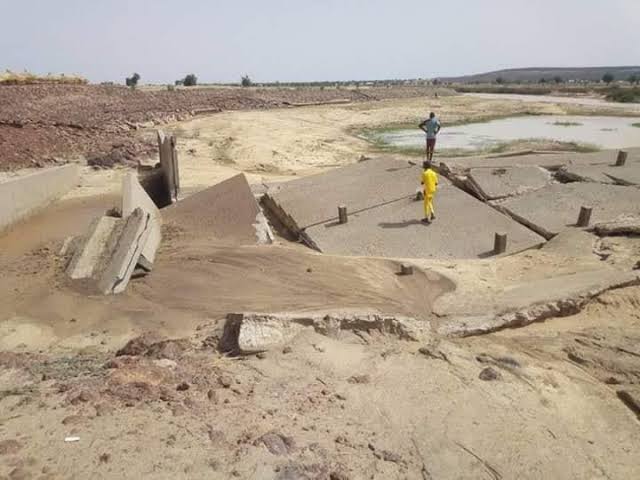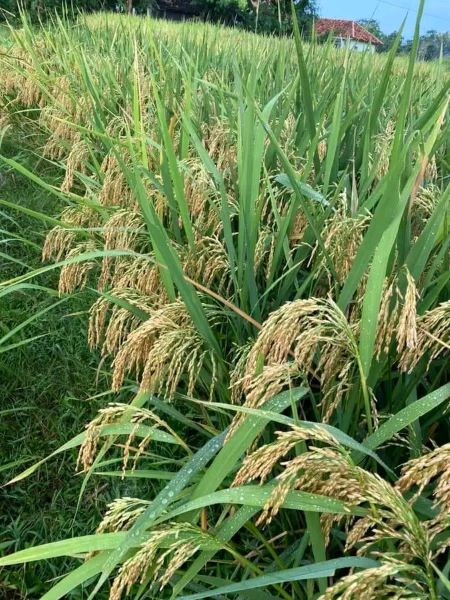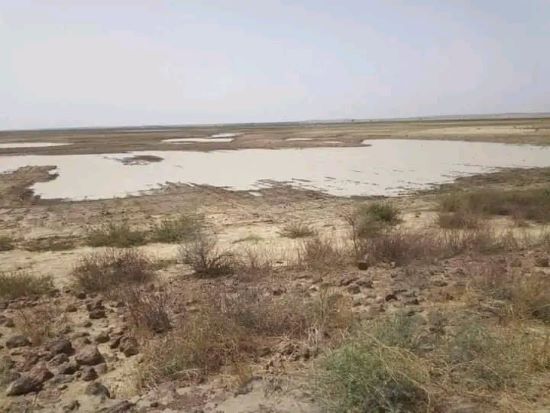Food insecurity in Sokoto state is a rapidly growing challenge, largely attributed to the effects of climate change, which is reducing productivity among farmers and encouraging economic instability.
Even before the onset of climate change, the arid region experienced minimal rainfall, necessitating heavy reliance on irrigation farming by local farmers.
Wurno local government in Sokoto state stands out as one of the top food-producing areas in the state, cultivating a variety of agricultural produce primarily through the utilisation of the Lugu Dam, in Wurno Community.
However, in recent years, this agricultural settlement has been grappling with challenges stemming from the drying up of the dam with its source from Bakalori dam, once a crucial resource that nurtured farming practices.
Environmental degradation, closely linked to the effects of climate change, has led to the depletion of water levels in the dam, significantly affecting agricultural activities.

According to Nasiru Namadina, a commercial farmer, Wurno serves as a vital food distribution network for over 10 local governments, extending its supply chain to neighbouring Niger Republic.
Namadina lamented the decline in agricultural productivity, stating, “When there was water in the dam, we used to cultivate various crops and supply them to neighboring local governments and cross border.
“But now, we see our children playing football in the dry dam pit instead of cultivating crops.”
This decline not only contributes to food insecurity but also exposes youths to idleness, which can lead to increased criminal activities in the community.

Another local farmer in the Gada local government area of Sokoto state, Emmanuel Gona, laments the increasing impact of climate change in the area.
Gona said that the area has experienced a noticeable shift in temperature patterns, leading to reduced rainfall and increased insect infestations.
All these, he said adversely affect crop yields.
“I was on phone with a friend, a farmer in Kafanchan, Kaduna state, asking him about the development of the planted crops. He bitterly complained of less rainfall affecting the crop seeds,” Gona stated.
In the previous year, Nigeria witnessed a decrease in agricultural output, attributed to both insecurity and the effect of climate change.
These challenges have resulted in increased living costs for its citizens.
Looking ahead, there are also concerns that this year’s agricultural yields may further decline, potentially worsening the economic situation for the average Nigerians.
“Due to this inadequate rainfall that almost surpasses last year’s and lack of irrigation farming tools, anything can happen. We are just praying,” Gona projected.
Mr Namadina suggested a solution to combat climate change’s impact on local farming.
The farmer, who emphasised that proper water management must be encouraged, also advocated for the construction of boreholes.
“With the Wurno Dam no longer operational, boreholes could offer a reliable water source for irrigation, sustaining crops despite erratic rainfall,” he said.

Moreover, Mr. Namadina called for the provision of irrigation farming tools to revive agricultural productivity.
These tools which include sprinklers, drip systems, and pumps, would according to the farmer, aid efficient water use.
He added that with modern irrigation techniques, farmers can minimise wastage and maximise yields, assuring food security in Sokoto.
Recently, the executive governor of Sokoto state, Dr. Ahmed Aliyu, revealed that Sokoto state government allocated N1 billion as counterpart funds for the Agro-Climatic Resilience in Semi-Arid Landscapes (ACReSAL) Project to address desert encroachment.
The ACReSAL project aims to tackle environmental degradation, enhance water access, improve food security, and generate employment for the youth in the state.
In response to these challenges, Abubakar Magaji, the acting state coordinator of the Agricultural Development Project (ADP) Sokoto, urged farmers to adopt new farming methods and utilize improved seeds that are resistant to pests, heat, and drought while maintaining high productivity.
Such measures are crucial for enhancing resilience to the effects of erratic rainfall and climate change, ensuring food security in Sokoto State.

